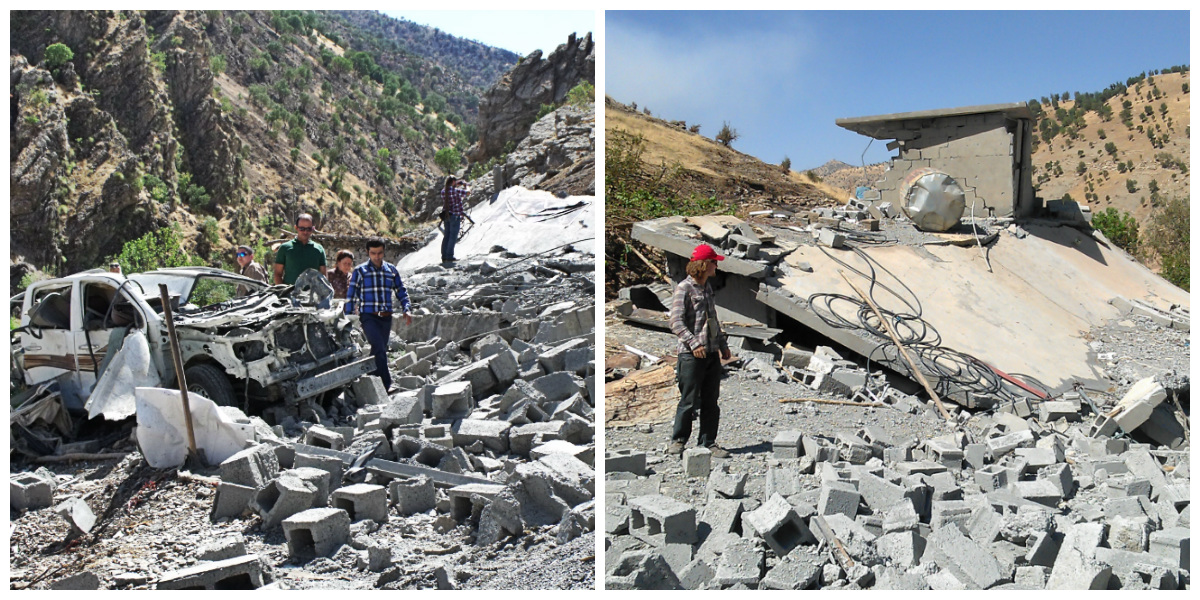Delegate from the UK reflects on his experience…
We’re halfway into our delegation, and I write my Friday night journal entry surrounded by incredible scenery, at the end of a long day travelling to the Qandil Mountains at the borders along northern Iraq and Iran. Our group is staying at the family home of Latif, CPT member, in the village of Gullan. We’re now relaxed after our hosts prepared a wonderful dinner, enjoying each other’s company and our added company of lush greenery, mountain ranges, and the shining multitude of stars now hanging above. The porch is brimming with the contented chattering of different conversations in Kurdish and English, deep conversations, laughter, and the melodic chirping of crickets.
“Beauty” feels a somewhat deficient term to describe the peace of this place and the landscapes we behold, yet that is the word which keeps recurring both in my own thoughts and in the discussions that unfold with my fellow travellers.
Even still, such incredible beauty as this finds ugliness as an unwanted and terrible companion. The Turkish government frequently launches bombing campaigns in this region, and in the past Iran has carried out similar operations. Turkey’s official explanation for these campaigns is that they are an attempt to neutralise the perceived threat of Kurdish militia.
By and large, however, the victims are the villagers themselves, as these attacks happen on the border regions indiscriminately. On the way to Qandil stands the memorial to a family killed in one of these attacks. The Kurds call the victims “martyrs,” as they believe they lost their lives through a determination to remain in their land and to preserve their cultural identity. Because these bombing campaigns have taken the lives of civilians and additionally displaced whole village communities, many Kurds perceive such attacks as yet another chapter in the heartbreaking history of attempted genocide and ethnic cleansing upon their people.
As we make our way into the mountainous areas, we stop at the village of Zargali, which has now been completely abandoned. Some residents of the neighbouring villagers accompany us as we examine the its ruins, including partially built houses from which families were forced to flee. The sight of these levelled buildings and abandoned homes, and the thick silence hanging in the air, are positively eerie.

Although exact numbers are hard to determine, our companions tell us that approximately 100 people once lived in this now desolate area, scattered among other villages and towns in the Kurdistan region. The most recent attack, on August 1st this year, levelled one mosque and six homes, and claimed the lives of eight people. Although some villagers are slowly beginning to return in to tend their crops, this is likely to be a long process of reconstruction and resettlement.
Upon joining us, one of our companions said simply “This is life here.”
To read the rest of the reflection please click here…
|


